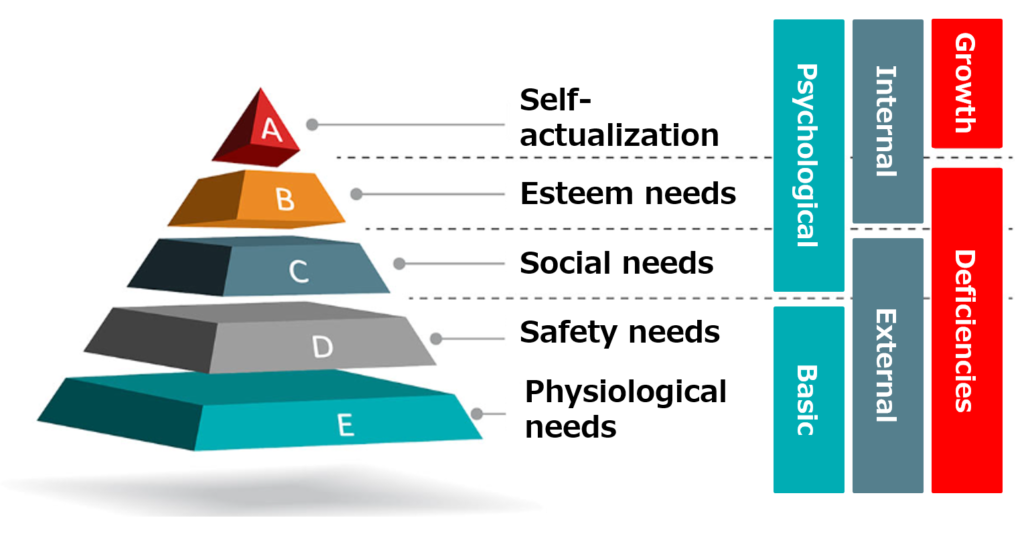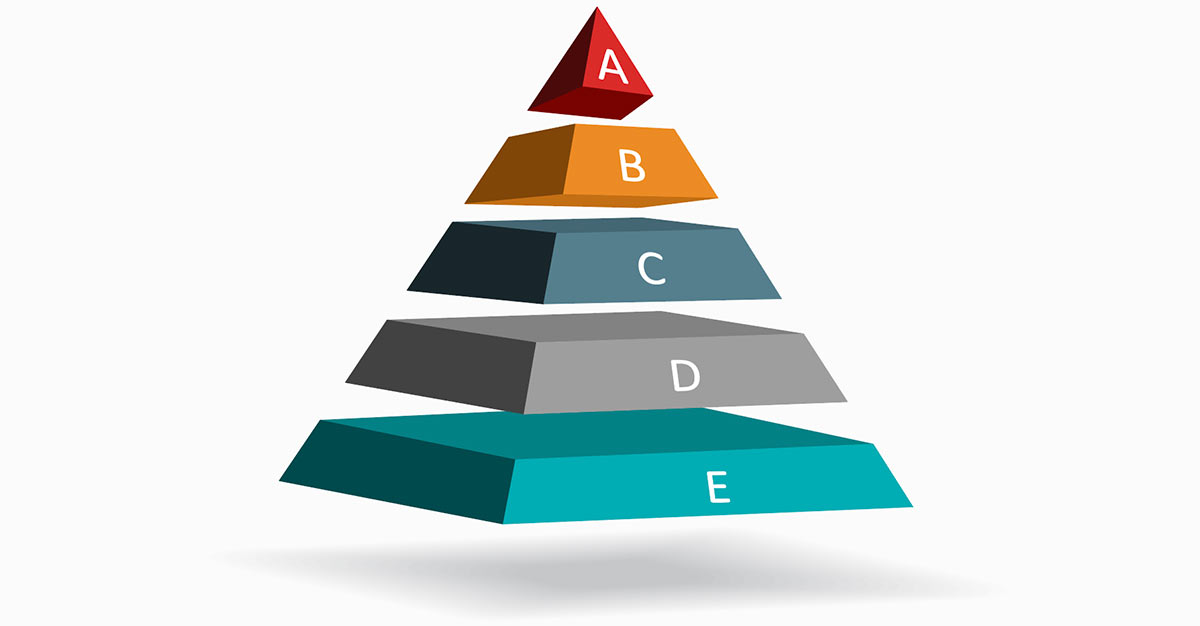Few people have ever heard of the five levels of Maslow’s hierarchy of needs. This theory, proposed by psychologist Maslow, describes a five-level pyramid of basic human needs. Here we will consider how satisfying basic needs applies to marketing.
Contents
Maslow’s hierarchy of needs

Maslow’s five-step need theory, proposed by American psychologist Abraham Maslow, states that basic human needs are organized in a pyramid of five levels and that when a need in a lower level is satisfied, the person tries to satisfy a need one level higher. The five levels of need consist of, from the lowest level, physiological, safety, social, approval, and self-actualization needs.
- Self-actualization to grow and improve your abilities
- Esteem needs to be recognized by yourself or others
- Love/Belonging needs to relate to others and belong to a group
- Safety needs to keep yourself safe
- Physiological needs to sustain life.
In today’s Japan, many people are probably in a state of wanting to satisfy their social and approval needs. This is because Japan is a developed country and a society where life and personal safety are ensured.
From a marketing perspective, there are many business opportunities for services that satisfy social needs and the need for approval. The increasing use of social networking services in recent years is a typical example of a service that satisfies a need for social interaction and recognition.
How to apply Maslow’s five stages of need theory to marketing
Desires can be categorized in terms of their nature as follows: material/spiritual, external/internal, and scarcity/growth.

- Basic Needs, Psychological Needs
- External Needs, Internal Needs
- Growth Needs, Deficiencies Needs
Products that satisfy material needs include televisions, washing machines, and vacuum cleaners, which satisfy needs through the possession of objects. On the other hand, products and services that satisfy spiritual needs may include self-help seminars, counseling, and social networking services. These products and services include elements to connect with others and satisfy the need for approval.
Products that satisfy external needs are things such as possessions and living environments. These are goods that satisfy a person’s external needs. Internal needs are classified as things that fulfill a person’s inner needs, such as things that bring self-confidence and things that contribute to society.
When it comes to products that satisfy scarcity needs, this would include most products and services that people seek. On the other hand, growth needs are self-actualization needs, which require people to realize their potential and achieve self-actualization. If we can create products and services that satisfy this need for growth, we will have a great business opportunity in an increasingly sophisticated society.
When people are satisfied, they will seek higher-order desires. In developed countries, as well as in today’s smartphone-connected world with the development of social networking services, the era of satisfying needs with goods is over and the fulfillment of spiritual needs is required more than ever. Maslow was a psychologist, and this theory, which breaks down human needs into stages, is also suggestive from a marketing perspective. This is an extremely important perspective in determining human insight and considering what kind of products and services are in demand.
Moving to Value-Driven Marketing, What are Mission, Vision, and Values?

